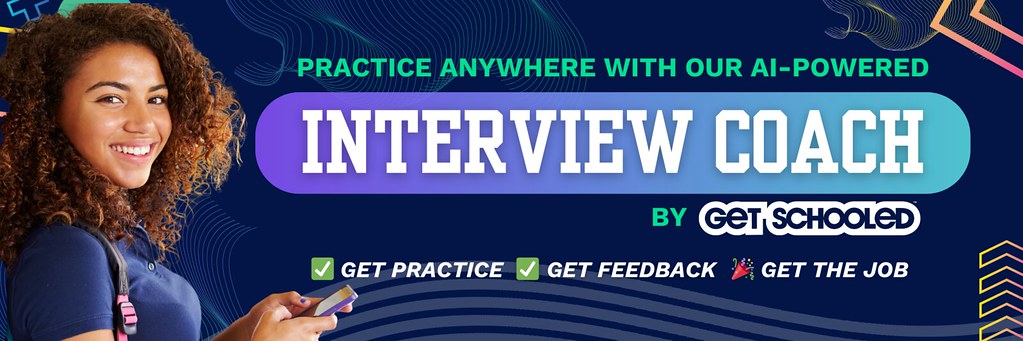Explore Careers with Informational Interviews
Last updated September 3, 2025
Are you interested in exploring careers but aren’t sure where to begin? Hold an informational interview! Informational interviews are one of the best ways to learn more about a career you’re interested in, directly from people working in them. Read below to learn more about informational interviews.
What is an informational interview?
An informational interview is an informal conversation between someone who is established in a particular career, and someone who wants to learn more about it. For example, maybe you are in college and trying to decide on your major. An informational interview with someone in a career you’re interested in could be a great way to narrow your choice! The goal of an informational interview is not to secure a job, but to collect information and make connections. An informational interview can give you a better understanding of the career path you’re interested in and what steps you should take to enter into it.
Benefits of informational interviews
Explore careers
During an informational interview, you can gather useful information about careers or industries. Being able to speak with someone who is already established at a company or in a career of interest to you will help you determine if it could be a good fit for you. Not sure where to start? Check out our career exploration video series, The Way, for some inspiration!
Expand your professional network
Informational interviewing provides you with an opportunity to deepen existing relationships within your professional network and meet new people to add to it.
Practice for job interviews
While these conversations are not job interviews, they are an excellent way to practice your interviewing skills. While you should ask a majority of the questions, the person you're interviewing may ask you questions as well. This gives you an opportunity to think on your feet and provide thoughtful answers to their questions.
Gain insight about career options
Depending on where they're at in their career, your interviewee may have insight into the kinds of jobs you might want to pursue. They can also speak to current trends in their career and what direction they see it heading toward. Learning this kind of information can introduce you to careers you might not have been aware of before. For example, if you’re interested in technology and computing, talking with a software engineer might inspire you to research Artificial Intelligence or free coding training. The person you're interviewing might also be open to sharing tips on the kinds of experience and skills that help land people jobs at their company, or be willing to keep their eyes open for potential opportunities in the future.
How to prepare for an informational interview
Research the careers you’re interested in
Informational interviews take preparation! Take time to research 3-5 companies or industries you’re interested in learning more about. Research the kinds of jobs that exist within that industry, the kinds of education or training necessary, and the typical salary range for these positions. Doing your homework and learning as much as you can will make your informational interviews more effective.
Identify who you’d like to interview
Think about who you want to interview. What positions do they hold? What companies do they work for? What could they teach you? Thinking more specifically about these kinds of things will make it easier for you to identify who you’ll reach out to for an interview.
Reach out
After you have your list, see if there are people in your network who may know someone in the field or job you are interested in and ask them to connect you. If someone in your network is able to refer you, great! If not, you might need to reach out to someone you don’t know. You can reach out to people either through LinkedIn or by sending them an email. Once you’ve secured an interview with someone, do your research on them: their specific position, the company they work for, and any of their relevant awards or achievements.
Top questions to ask in an informational interview
Once you schedule your interview, it's time to prepare your questions. Depending on how long you have, you may not be able to get through all of your questions, so be sure to ask the ones you want answered most at the beginning of the conversation, and save the rest to ask later if there’s time.
Top questions to ask
- What are the duties, functions, and responsibilities of your job?
- How did you get your job?
- Why did you decide to work for this company or in this industry?
- What type of education or training does your company look for?
- What are some trends your industry is setting or following?
- When searching for a job in your field, what keywords should I be sure to include on my resume or cover letters?
- What part of your job do you find most rewarding? Most challenging?
- What kinds of experience, paid or unpaid, would you encourage for anybody pursuing a career in this field?
Take notes
During the interview, be sure to take notes so you have something to review later. You don’t have to write down everything, but definitely make sure to jot down any strategies, names, emails, or resources your interviewee may mention.
Stick to your schedule
Informational interviews should generally be short out of respect for your interviewee’s time. If you requested a 20-minute meeting, be sure to stick to 20 minutes.
Send a thank you note
If someone is taking time out of their day to help you, you should always say thank you. Be sure to send a follow up note to your interviewee within 48 hours to thank them for their time. If you haven’t already, be sure to also add them to your LinkedIn network.
Do you have any questions about preparing for an informational interview? Connect with a Get Schooled Advisor.
